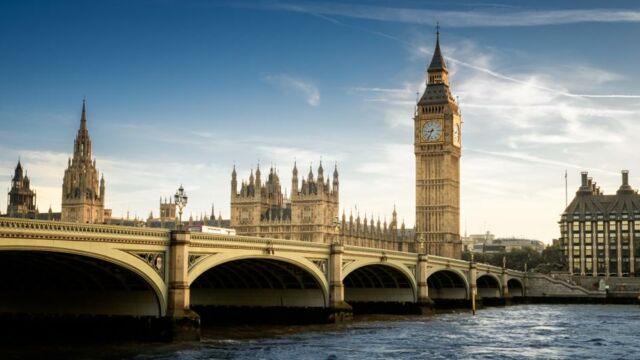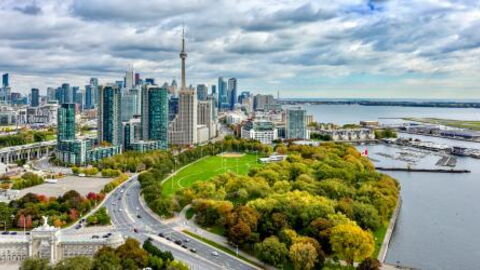In the UK, the government took a relatively relaxed approach to containing the virus until recently. Today, following a chilling and eye-opening data modelling publication from Imperial College London – and over 400 new confirmed cases within one day – the UK government changed course and is now planning to put emergency procedures and legislation in place.
Discover our latest podcast
We’ve compiled everything you need to know about the current situation in the UK, including flights, events, and using NHS services – fully up to date on March 17th, but subject to change.
Flights
The UK hasn’t closed its borders. However, many flights are being cancelled due to travel restrictions imposed by other countries and the drop in ticket sales. If you’re planning on taking a flight from or to the UK anytime soon, make sure you check your booking regularly for updates.
At airports, extreme caution is advised. Try to keep as much distance between yourself and others as possible, wash your hands properly and as often as you can, and use anti-bacterial gel on your hands frequently.
Before flying out, remember to check the current situation in your destination country – your flight might not be cancelled, but you may experience delays and difficulties on the other side. For instance, some countries have introduced mandatory quarantines for passengers of all incoming flights, and others are not allowing foreign citizens to enter the country at all.
Accessing health services
NHS services are still largely accessible, although it’s recommended to use them only when necessary. The current advice is to seek medical help only in real emergencies, and use the NHS emergency phone service (111), rather than heading down straight to the GP or hospital, whenever possible.
Beginning now (in March), the NHS is working on cancelling all non-essential elective procedures – so if you were scheduled for one of those, expect for it to be postponed.
Quarantine
At the time of writing (March 17th), quarantine is not one of the measures used in the UK. However, emergency legislation is currently being processed by the government, and if passed, it will give authorities the right to place individuals believed to be a threat to public health under obligatory quarantine.
In the meantime, people who display potential symptoms of coronavirus are asked to self-isolate. There has also been a suggestion to encourage those aged over 70 to remain at home and reduce social contact for the next 12 weeks, as a means to protect this particularly vulnerable group. However, the elderly will of course not be forced to comply.
UPDATE:
(24 March 2020) In an address to the nation last night, Prime Minister Boris Johnson enacted new restrictions on the British public in an effort to help slow the spread of the COVID-19 coronavirus. These restrictions have come in the form of mandatory quarantine effective immediately. Despite some of the public complying with social distancing rules and the suggestions of self-isolation set in place last week, "the time has now come for us all to do more."
The public is now only allowed to leave their home for the following reasons:
- Shopping for basic necessities (as infrequently as possible)
- One form of exercise a day (run, walk etc) alone or with members of your household
- Medical reasons (to seek care or supplies)
- Travelling to and from work, only if you are unable to work from home
If the public does not follow these new rules, the police have been given authority to fine or disperse gatherings as necessary.
Education
Most schools remain in service in the UK, with a few exceptions closed due to students infected with coronavirus. Some higher education providers, such as Coventry University, are switching to online lectures and other remote alternatives in order to limit face-to-face contact.
That being said, many other countries in Europe have decided to close all of their schools, so it’s not unlikely that the UK will follow eventually. For now, though, lessons are taking place.
UPDATE:
(20 March 2020) - All schools, sixth-forms and colleges across the UK closed and will remain closed until further notice
Arts, entertainment, and events
According to the most recent update from Downing Street, all cinemas, pubs, museums, and similar venues are to be closed until further notice. This is a safety measure intended to limit contact between large groups of people and curb the spread of the virus.
In addition, a number of events have been cancelled or postponed. BBC Radio 1’s Big Weekend music festival and concerts by Avril Lavigne and The Who, among others, have been cancelled. Glastonbury Festival hasn’t announced cancellation or postponing so far, but this is likely to happen.
Sporting events are taking a hit too, with the London and Brighton Marathons postponed and the Premier League being temporarily suspended.
Please note that while the above information is correct at the time of writing, the situation is ever-changing. It’s important to keep checking for updates and depend on the latest information. The official UK government website on coronavirus is a good place to start.
Closures and restrictions
As of 23 March 2020, all shops selling non-essential goods will be close, including clothing and electronic stores. In addition, other premises such as libraries, playgrounds and place of worship will also be closed until further notice. All gatherings in public will be limited to 2 people unless they are people you live with. Weddings, baptisms and ceremonies of that nature are also to be postponed until further notice. Funerals are excluded from the restrictions.
Public parks are to remain open for exercise purposes however any gatherings will be dispersed by law enforcement.















